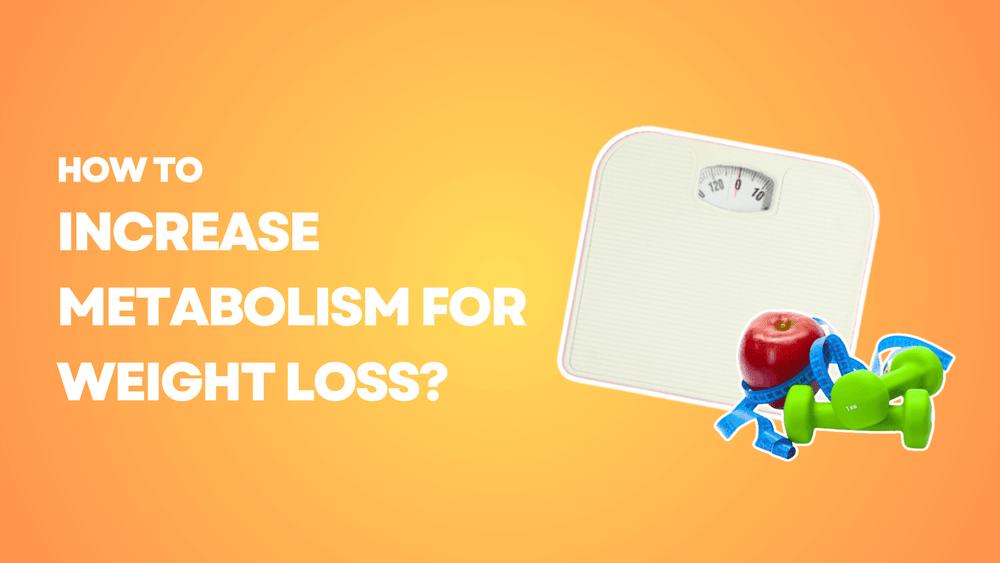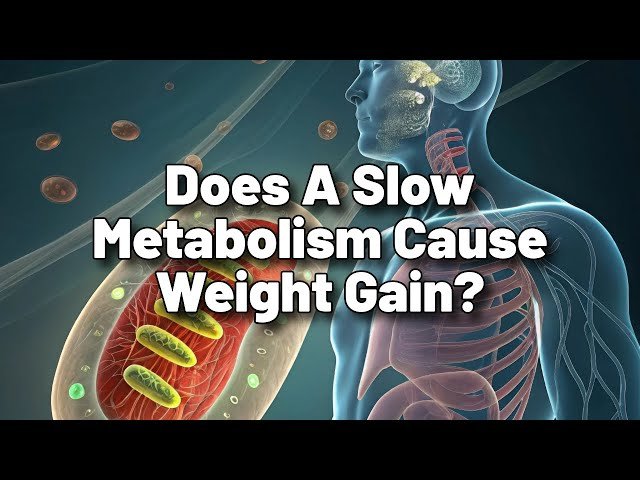Have you ever wondered why some people seem to lose weight faster, while you struggle despite dieting and exercising? The answer often lies in one key factor: your metabolism.
Understanding what metabolism really does can change how you approach weight loss. It’s not just about eating less or moving more; it’s about how your body uses energy every single day. You’ll discover how metabolism affects your weight loss journey and learn simple ways to work with it—not against it.
Keep reading, because unlocking this secret could be the game-changer you’ve been looking for.
Metabolism Basics
Metabolism is the process your body uses to turn food into energy. It helps you live, move, and grow.
Understanding metabolism is important for weight loss. It shows how your body uses calories.
How Metabolism Works
Metabolism breaks down food into smaller parts. These parts turn into energy your body can use.
Energy powers all body functions like breathing, thinking, and moving. This process happens all day.
Types Of Metabolic Processes
Metabolism has two main parts: catabolism and anabolism. Both are needed for your body to work well.
- Catabolism:breaks down food and releases energy
- Anabolism:uses energy to build and repair body parts
Metabolic Rate Factors
Metabolic rate is how fast your body burns calories. It changes based on many factors.
- Age: metabolism slows as you get older
- Body size: bigger bodies burn more calories
- Muscle mass: more muscle means higher metabolism
- Activity level: active people burn more energy
- Genetics: some people have faster or slower metabolism

Metabolism And Weight Loss
Metabolism is how your body changes food into energy. It helps you burn calories all day long.
Understanding metabolism helps explain why some people lose weight faster than others.
Calorie Burning Explained
Your body burns calories to keep you alive and active. This includes breathing, moving, and thinking.
Calories come from food, and your body uses them for energy. The more calories you burn, the more weight you can lose.
Metabolic Rate And Fat Loss
Metabolic rate is how fast your body burns calories. A higher rate means more calories burned.
People with a fast metabolism often lose fat easier, but many factors affect this rate, like age and muscle size.
- Muscle burns more calories than fat
- Exercise can raise your metabolic rate
- Age can slow metabolism over time
Common Metabolism Myths
Many myths exist about metabolism and weight loss. Some say metabolism is the only factor, but it is not.
Other myths include the idea that eating very little speeds metabolism or that metabolism cannot change.
- Eating tiny meals does not boost metabolism much
- Metabolism can change with diet and exercise
- Weight loss depends on calories in versus out
Boosting Metabolism Naturally
Metabolism is the process your body uses to turn food into energy. A faster metabolism can help you lose weight by burning more calories.
Many natural ways exist to boost metabolism. These include what you eat, how you move, and how well you rest.
Impact Of Diet Choices
The foods you eat affect your metabolism speed. Eating protein-rich meals can raise your metabolic rate for a few hours.
Spicy foods like chili peppers may increase metabolism slightly. Drinking water before meals can also help burn more calories.
- Include lean proteins like chicken and fish
- Add spicy peppers to your dishes
- Drink cold water throughout the day
- Eat small, frequent meals to keep metabolism active
Exercise And Metabolic Increase
Exercise helps raise your metabolism during and after activity. Strength training builds muscle, which burns more calories even at rest.
Cardio workouts like running or cycling increase calorie burn. Mixing different exercises keeps metabolism from slowing down.
- Do strength training twice a week
- Include cardio exercises like walking or jogging
- Try high-intensity interval training (HIIT) for short bursts
- Stay active throughout the day with light movements
Role Of Sleep And Stress
Good sleep supports a healthy metabolism. Poor sleep slows it down and increases hunger hormones.
Stress raises cortisol, a hormone that can lead to weight gain. Managing stress helps keep metabolism steady.
- Aim for 7-9 hours of sleep each night
- Practice relaxation techniques like deep breathing
- Keep a regular sleep schedule
- Avoid screens before bedtime

Metabolism Challenges
Metabolism is the process that turns food into energy. It affects how fast you burn calories. Some people find it hard to lose weight because of metabolism challenges.
These challenges can come from many causes. Age, health problems, and genetics can slow metabolism. Knowing these can help understand weight loss struggles.
Age And Metabolic Decline
As people get older, their metabolism tends to slow down. This means the body burns fewer calories at rest. Muscle loss with age also lowers metabolism.
Because of this, older adults may gain weight more easily. They need less food or more exercise to keep weight steady.
Medical Conditions Affecting Metabolism
Certain medical conditions can slow metabolism. Problems with the thyroid gland are common causes. Hypothyroidism lowers hormone levels that control metabolism.
Other conditions like diabetes or hormonal imbalances also affect how the body uses energy. Some medicines can slow metabolism too.
- Hypothyroidism reduces metabolism speed
- Diabetes affects energy use and storage
- Hormone disorders disrupt calorie burning
- Some medications lower metabolic rate
Genetics And Metabolic Speed
Genes influence how fast metabolism works. Some people inherit a faster metabolism, burning calories quickly. Others have a slower metabolic rate from birth.
Genetic differences affect body weight and how the body reacts to food. These inherited traits can make weight loss easier or harder.
Metabolic Adaptation During Dieting
Metabolism is the process your body uses to turn food into energy. It changes during weight loss. This change is called metabolic adaptation.
Metabolic adaptation can make losing weight harder. The body slows down to save energy when you eat less.
How Metabolism Adjusts To Weight Loss
When you lose weight, your body needs less energy. It burns fewer calories at rest and during activities. This is the body’s way to protect itself from starvation.
The slower metabolism means you may stop losing weight even if you eat the same amount. Your body becomes more efficient and uses energy carefully.
Preventing Metabolic Slowdown
To avoid a big drop in metabolism, do not cut calories too much. A slow, steady weight loss is better for your metabolism.
Adding strength training helps keep your muscles. Muscles burn more calories than fat, so this helps keep metabolism higher.
- Eat enough protein to support muscles
- Do regular strength exercises
- Lose weight gradually, about 1-2 pounds per week
Strategies For Long-term Success
Keep your metabolism active by staying physically active every day. Mix cardio and strength workouts for best results.
Focus on healthy eating habits that you can keep for life. Avoid very low-calorie diets that can harm your metabolism.
- Eat balanced meals with protein, carbs, and fats
- Exercise regularly, including strength training
- Get enough sleep to support metabolism
- Adjust food intake as weight changes

Frequently Asked Questions
What Is Metabolism In Simple Terms?
Metabolism is the process your body uses to convert food into energy. It involves chemical reactions that break down nutrients. A faster metabolism burns more calories, aiding weight loss. Understanding metabolism helps tailor diet and exercise for effective weight management.
How Does Metabolism Affect Weight Loss?
Metabolism determines how many calories your body burns at rest and during activity. A faster metabolism increases calorie burn, helping you lose weight faster. Slow metabolism may make weight loss harder. Boosting metabolism through exercise and diet supports effective weight management.
Can Metabolism Be Increased Naturally?
Yes, metabolism can be naturally increased by regular exercise, especially strength training. Eating protein-rich foods also boosts metabolism. Staying hydrated and getting enough sleep are important. Small, frequent meals may help maintain metabolic rate throughout the day.
Does Metabolism Slow Down With Age?
Yes, metabolism tends to slow down as you age due to muscle loss and hormonal changes. This can make weight loss more challenging. Maintaining muscle mass through exercise and a balanced diet helps counteract metabolic slowdown and supports healthy weight management.
Conclusion
Metabolism plays a key role in weight loss. It controls how fast you burn calories. Faster metabolism means more calories burned. This can help with weight loss. You can boost metabolism by staying active. Eating balanced meals also helps. Remember, every body is different.
What works for one might not work for another. Listen to your body. Make small changes and stay consistent. Healthy habits make a big difference over time. Keep learning. Stay patient. You’ll see results.



